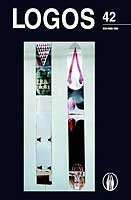PIRMASIS LOGIKOS AMŽIUS LIETUVOJE: ONTINIS UNIVERSALIJŲ PROBLEMOS LYGMUO
The First Age of Logic in Lithuania: The Ontological Level of the Problem of Universals
Author(s): Vytis ValatkaSubject(s): Philosophy
Published by: Visuomeninė organizacija »LOGOS«
Keywords: Universal; moderate realism; conceptualism; objective being in intellect.
Summary/Abstract: The interpretation of the ontological level of the problem of universals, involved in logic in Lithuania in the sixteenth century, cannot be strictly ascribed to any of the classical variants of realism and nominalism. Such an interpretation, similar to that of Francisco Suarez, would rather be regarded as an intermediate model between moderate realism and conceptualism. Like the moderate realists, the representatives of the above mentioned logic (M. Smiglecki, P. Viana and D. Ortiz) maintained that universals are given in the very nature of individual things. But, contrary to moderate realism, Lithuanian scholiasts refused to acknowledge the real existence of universals. In their opinion, universal nature exists in the multitude of individuals just as much as it is cognised by the human intellect. On the other hand, together with the conceptualists, the scholiasts of Vilnius affirmed the existence of universals in the human intellect. But, unlike conceptualism, these authors, with the exception of Viana alone, did not attribute the status of the universal to a common concept of particular things. The universal was regarded as the very nature of real things, which our intellect abstracts from particularising conditions and cognises beyond the frame of individuality. Meanwhile, the common concept was treated as a representation of the universal, created by the human intellect.
Journal: LOGOS - A Journal of Religion, Philosophy, Comparative Cultural Studies and Art
- Issue Year: 2005
- Issue No: 42
- Page Range: 25-34
- Page Count: 10
- Language: Lithuanian

